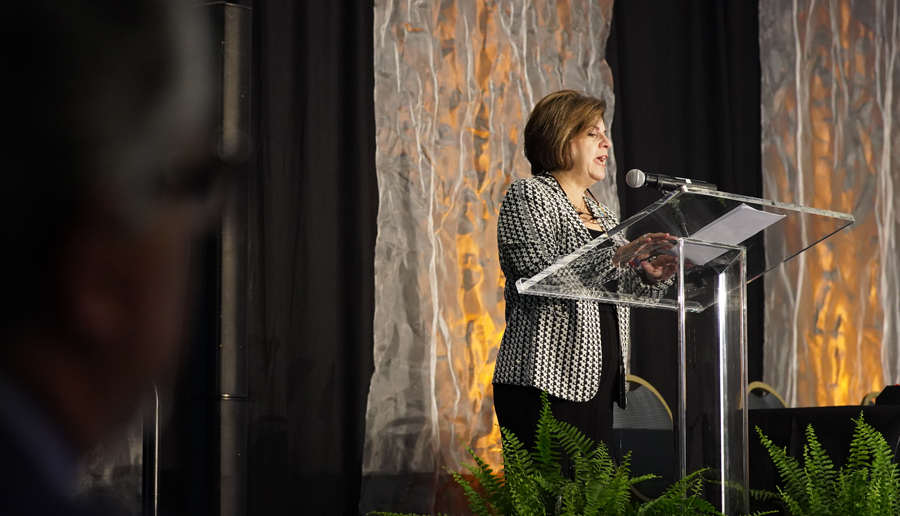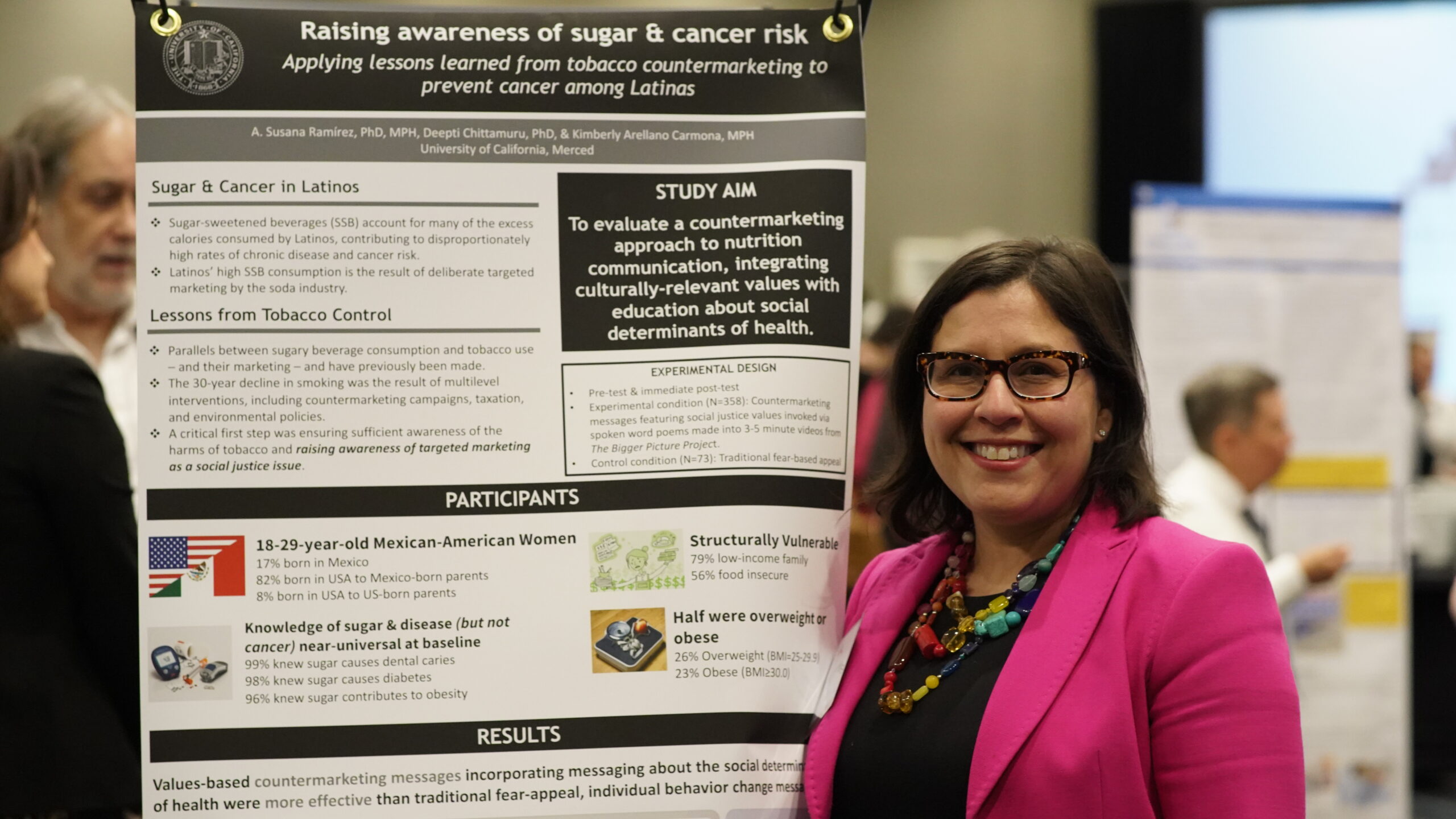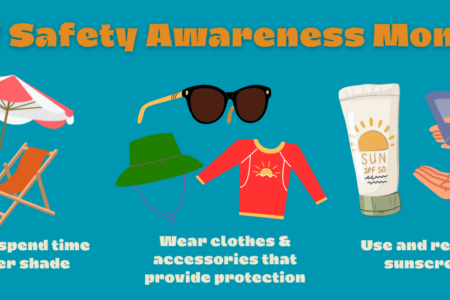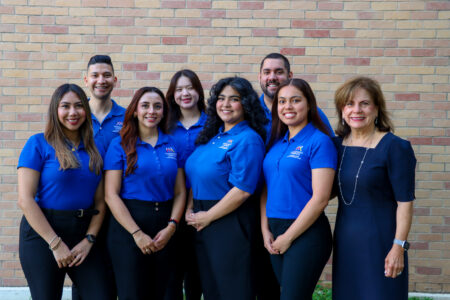Share On Social!
With 1 in 3 Latinos facing a cancer diagnosis in their lifetime, UT Health San Antonio is hosting the 2022 Advancing the Science of Cancer in Latinos in-person conference on Feb. 23-25 at the Westin Riverwalk, 420 W. Market St, in San Antonio, Texas.
The biennial conference is expected to draw 200 researchers, oncologists, physicians, community leaders, and students for an open dialogue on research advancements and actions to translate basic research into clinical best practices, effective community interventions, system-change advocacy, and professional training to eliminate cancer disparities in Latinos.
The first Advancing the Science of Cancer in Latinos conferences in 2018 and 2020 united 80 guest speakers and over 600 attendees from 25 states, from D.C and New York to California.
At the 2022 conference, attendees will generate new ideas for research, practice, and communication to address Latino cancer health disparities, and build multidisciplinary collaborations to advance cancer prevention, treatment, and survivorship—including the connections of cancer care and COVID-19 and health equity.
“Advancing the Science of Cancer in Latinos is needed because U.S. Latinos face a 142% rise in cancer cases in the coming years. Disparities plague our population in access to care and social needs, screening, clinical trials, risk factors, mortality, and survivorship, all worsened by COVID-19,” said Dr. Amelie Ramirez, chair of the Department of Population Health Sciences and director of the Salud America! program and the Institute for Health Promotion Research (IHPR) at UT Health San Antonio. The IHPR will co-host the conference with the Mays Cancer Center.
The Need for the Advancing the Science of Cancer in Latinos Conference
At 18.5% of the U.S. population, Latinos are the largest racial/ethnic group.

Although there has been substantial progress in cancer prevention, screening, diagnosis and treatment over the past several decades, advancement in addressing the Latino cancer disparities has not kept pace.
Latinos suffer disparities in liver, stomach, and cervical cancer incidence, and worse outcomes in other cancer types.
“These disparities are driven by structural inequities—from a lack of healthcare access to unreliable housing—that have been built into governmental laws, economic policies, school systems, neighborhoods, businesses, research, and healthcare,” Ramirez said.
Speakers for the Advancing the Science of Cancer in Latinos Conference
Advancing the Science of Cancer in Latinos keynote speakers include:
Robert Santos, Director, U.S. Census Bureau. Born and raised in San Antonio, Texas, he earned a mathematics degree from Trinity University. His expertise is quantitative and qualitative research design, sampling, survey operations, and statistical analysis focused on immigrants and other disadvantaged populations. In November 2021, Santos was President Biden’s nominee to head the U.S. Census Bureau, becoming the first Latino to lead the federal government’s largest statistical agency.

Eliseo J. Pérez-Stable, National Institute on Minority Health and Health Disparities at the National Institutes of Health. He oversees NIMHD’s appropriated budget of $390.4 million to advance the science of minority health and health disparities. His expertise spans a broad range of health disparities disciplines, including understanding underlying causes and effective interventions.
Katrina Goddard, Director of the Division of Cancer Control and Population Sciences at the National Cancer Institute. She oversees NCI’s work on epidemiology, behavioral science, surveillance, cancer survivorship, and health services research.
Robert Winn, Virginia Commonwealth University, Massey Cancer Center. As the only African American director of a National Cancer Institute-designated cancer center, he is leading the nation in establishing a 21st-century model of equity for cancer science and care.
These and other speakers will share research to build on progress made at the 2018 and 2020 Advancing the Science of Cancer in Latinos conferences. Proceedings were published in Springer Open Books, Advancing the Science of Cancer in Latinos.
The Team Behind the Advancing the Science of Cancer in Latinos Conference
Ramirez’s IHPR will co-host Advancing the Science of Cancer in Latinos with the Mays Cancer Center.
The conference planning committee is led by co-chairs Ramirez and Dr. Edward J. Trapido of Louisiana State University.

The rest of the committee includes:
- Adelaida M. Rosario, PhD, National Institute on Minority Health and Health Disparities
- Anna M. Napoles, PhD, National Institute on Minority Health and Health Disparities
- Barbara Segarra Vasquez, MT, DHSc, University of Puerto Rico
- Filipa C. Lynce, MD, Georgetown University
- Katherine Y. Tossas, PhD, Massey Cancer Center, Virginia Commonwealth University
- Jose G. Trevino, MD, Massey Cancer Center, Virginia Commonwealth University
- Frank J. Penedo, PhD, University of Miami
- Laura Fejerman, PhD, University of California, Davis
- Laura Magana Valladares, PhD, Association of Schools and Programs of Public Health
- Elena V. Rios, MD, MSPH, FACP, National Hispanic Medical Association
- Mariana C. Stern, PhD, University of Southern California
- Martin Mendoza, PhD, Director of Health Equity for the All of Us Research Program
- Matthew P. Banegas, PhD, Kaiser Permanente
- Adolfo Diaz Duque, MD, Mays Cancer Center, UT Health San Antonio
- Patricia I. Moreno, PhD, Northwestern University
- Rafael Fonseca, MD, Mayo Clinic
- Sandi Stanford, Alamo Breast Cancer Foundation
“We anticipate promoting progress to translate research advancements into clinical best practices, system changes, effective community interventions, professional training programs, and advocacy actions to address Latino health inequities and prevent their resulting cancer disparities, thus helping to save lives,” Ramirez said.
For more information and to see the full conference agenda, visit LatinoCancer.com or email LatinoCancer@uthscsa.edu. The conference hashtag is #LatinoCancer2022.
By The Numbers
142
Percent
Expected rise in Latino cancer cases in coming years



